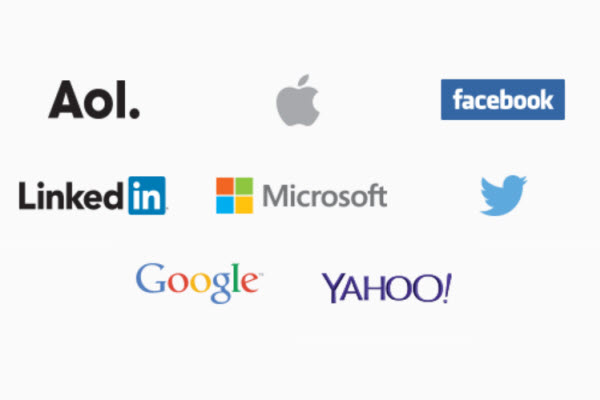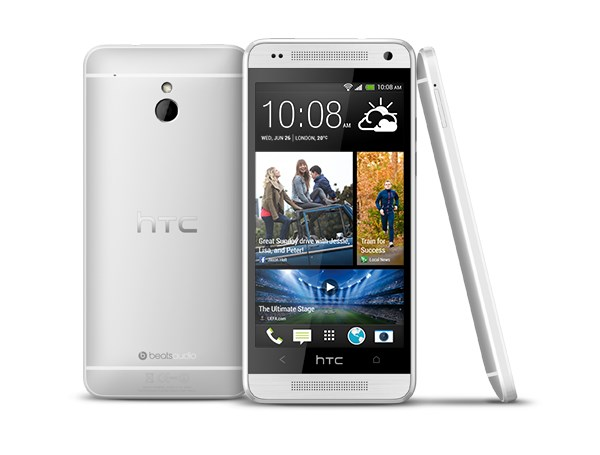
Pinterest faces trademark battle in Europe over use of name
What comes to mind when you hear the name Pinterest? It's probably the famous content sharing site that enables users to pin their online finds to a virtual pinboard. But a British firm has proved in court that it registered the Pinterest trademark in Europe two months before the more famous Pinterest had even registered the name in the US. Premium Interest -- which feasibly shortens to Pinterest -- is a news aggregation service based in London founded by Alex Hearn.
The startup registered the Pinterest trademark in Europe in January 2012, but it wasn't until two months later that Pinterest filed for the trademark in the US. The ruling was made by the European Commission’s Office for Harmonization in the Internal Market, Trade Marks and Designs Division "rejected in its entirety" Pinterest's claim to the name in Europe. The court made its decision back in November, but the ruling has only just been made public.

YouTube slaps copyright violation notices on game footage videos
A number of YouTube users who post game walkthroughs and feature footage from games in other ways are finding that their content is being flagged for copyright violation. It seems that uploaders are falling victim to YouTube's automated ContentID system which is responsible for weeding out all manner of copyrighted material. What is interesting is that videos are not being removed from YouTube, but are unable to earn money from advertisements, leading to a loss in revenue for a lot of people.
Uploaders are warned that their videos are still viewable but told that the flagged video's copyright is owned by someone else. What is confusing is the fact that the companies named in relation to the warnings do not actually seem to be the copyright holder. For example, VentureBeat cites the case of warnings being handed out for videos featuring footage from the game Metro: Last Light.

Government surveillance needs to be reformed, say Google, Microsoft, Apple, and others
Headlines about government surveillance of web usage all over the world have been difficult to avoid this past year. Since Edward Snowden blew the whistle on activities by the NSA, both companies and web users have been asking for greater transparency in data collection and there have been endless calls for dragnet data collection to be stopped completely. It is often the case that when confronted with a common enemy, some unlikely alliances are forged. This is certainly true with the NSA, and now Apple, Google, Microsoft, Facebook, Yahoo, LinkedIn, Twitter and AOL are all coming together to present a united front and push for legal reform.
The collective has written an open letter to President Obama and congress, warning that "the balance in many countries has tipped too far in favor of the state and away from the rights of the individual". There has been quite a backlash against the number of requests for data that the US government has made of companies, and the letter makes it clear that the eight companies that have joined forces are not happy:

The most popular stories on BetaNews this past week -- December 1 - 7
The tech world seems to be slowling down slightly in the run up to Christmas, but there have still been a lot of stories over the past seven days. There are sure to be a whole new raft of sales to look forward to both before and after Christmas, but if the Thanksgiving sales are anything to go by they may not offer as good a deal as first appearances would have you believe. Whether you bag a bargain or not, it looks as though tech presents are going to be as popular as ever this year -- and if you buy a Windows device, you'll get a free gift card.
After Microsoft tried comparing the Surface to the iPad Air, Amazon decided to follow suit -- guess which was more popular! Microsoft kept its fire trained on Google, taking a swipe at the Chromebook. Tablet makers may be pushing their product in the run up to Christmas, but PC shipments have suffered the largest decline ever. New computers will have an updated USB connection in the near future. USB type C brings to an end a problem that has plagued anyone who has ever plugged in a USB cable -- this generation can be plugged in either way up!

FTC charges Android flashlight developer with leaving users in the dark about data usage
The permissions screen that pops up during the installation of an Android app has become the new EULA. Very few people bother to read through what is on screen before clicking through and going ahead with the installation -- you could be signing your life away for all you know!
Apps will let you know if they make use of your location, have access to your contacts, could send messages on your behalf and numerous other things. But in the case of Brightest Flashlight Free it turned out that the app was not only sharing users' location and device ID information with third party advertisers, but it was doing so secretly.

Judge blocks UK HTC One mini sales, leaks potential launch date of One successor
HTC could be banned from selling its One mini phone in the UK if an appeal against a court ruling fails. Judge Richard Arnold has ruled that several HTC handsets could be removed from sale after a court battle with Nokia over patent infringement claims. HTC has already lodged an appeal against the ruling which has the potential to block the sale of other HTC phones -- although the HTC One managed to escape the ruling.
Nokia had claimed that some of HTC's phones included chips for which the Finnish company owns the patent and back in October the High Court in London found this to be the case. This latest ruling is the next step in Nokia's legal battle, but it is not yet clear whether a ban will definitely be put in place -- this depends on the success, or otherwise, of the appeal.

Google and Microsoft work together to block access to child porn
To help fight the problem of child pornography online, Google and Microsoft are joining forces to block access to illegal content in the UK and then globally. Writing in the Daily Mail, Google's Eric Scmidt explains how new search filtering techniques now prevent more than 100,000 search terms relating to child pornography from returning any results. The filtering is starting in English speaking countries, but will soon roll out to more than 150 languages.
He explains that Google and Microsoft have worked with law enforcement agencies for many years and are proactively involved in the removal of illegal images. More than 200 extra employees have been assigned the tasks of developing new technologies over the last three months. This is very much a joint venture between the two companies, and Schmidt recognizes the input of Microsoft, saying that the company "deserves a lot of credit for developing and sharing its picture detection technology".

Data on a plane gets the greenlight -- European Commission likes the idea of in-flight Facebooking
Following the lead of US airlines, the European Commission gives the go-ahead for the use of 3G and 4G services during flights. The Commission is permitting the use of UMTS and LTE data connections on aircraft above altitudes of 3,000 meters in the European Union (EU). Up until now, only 2G (GSM) usage has been allowed and the decision paves the way for passengers to make use of high speed data connections, although the decision about whether to permit this on individual flights lies with airlines.
The Commission's announcement makes it clear that the decision does not translate into an automatic right for passengers to use data connections, at least partly because aircraft need to be adapted.

FCC calls for phone unlocking to be made much, much easier
The head of the Federal Communication Commission (FCC), Tom Wheeler, is calling for phone providers to pass rules that will make it easier for handset owners to unlock their devices. In a letter to Steve Largent, president and CEO of CTIA The Wireless Association, Wheeler says that "enough time has passed, and it is now time for the industry to act voluntarily or for the FCC to regulate". He goes on to call for the unlocking policy to be put in place before the December holiday season.
Wheeler is concerned that despite eight months of collaboration between CTIA and the FCC to make changes to CTIA's Consumer Code, these changes are yet to be made. The FCC is asking for five specific rules to be put in place to make it easier for consumers to unlock their phones.

Judge rules Google's scanning of books is not illegal
There is nothing wrong with Google scanning millions of book and making that text available as snippets in search results. This is the ruling made today by a judge in New York, bringing to an end an eight year legal battle between Google and The Authors Guild in conjunction with several specific authors. Starting back in 2004, Google has scanned more than twenty million books -- and permission was not obtained from the copyright holder in many cases.
A class action lawsuit was launched against Google back in 2005, but in New York, U.S. Circuit Judge Denny Chin has ruled that there is no copyright infringement and that Google's book scanning qualifies as fair use. Among the named writers were former New York Yankees pitcher Jim Bouton, The Trouble with Thirteen author Betty Miles, and legal author Joseph Goulden.

Canonical tries to stop fan website using Ubuntu name and logo
Canonical, the team behind Ubuntu, finds itself the subject of criticism after contacting an Ubuntu related website and asking that the domain name be changed. Fix Ubuntu was created by Micah Lee to provide Ubuntu users with instructions about how to disable the web component of the desktop search tool. Lee was emailed by Canonical to request that he not only stop using the word "Ubuntu" in the domain name, but also refrained from using the logo.
The reason? Canonical's email suggests that the name and use of logo could cause confusion among Ubuntu users:

Apple joins the party and reveals details of government data requests
It's becoming a familiar story. A big name company decides to reveal figures about the number of requests for data that have been received from the government, apologizing straight away for the lack of detail it can provide. Microsoft has already done it, as has LinkedIn and Google. The latest figures come from Apple, and they make for interesting reading.
The report starts off by stating that Apple is revealing as much information as it is legally allowed to, and then immediately goes on the defensive:

Torrent site isoHunt closes early to foil backup plan
In a bid to foil plans to create a backup of the site, isoHunt closes its doors ahead of its planned shutdown. On 16 October, isoHunt founder Gary Fung struck a deal with the MPAA, bringing to an end a series of court battles that have waged for several years.
Fung agreed to pay damages of $110 million and to shut down isoHunt -- along with TorrentBox, www.podtropolis.com and www.ed2k-it.com -- within seven days.

The most popular stories on BetaNews this past week -- October 13-19
This was another week in which Microsoft managed to steal the show, this time with the public release of Windows 8.1. Here at BetaNews we were fully prepared for the upgrade and showed off what's new. While we're generally impressed with the update, there's still a little room for improvement. Of course the Start menu (or lack thereof) is still a sticking point, but you can get this back. The operating system update was preceded by a raft of updates to Window's built in apps.
Windows 8.1 may be where it's at right now, but there are still plenty of people running Windows XP. Google announced that Chrome users on XP would be supported for a year after the OS is retired.

Microsoft uses DMCA to force BetaNews and others to remove old software listings
Microsoft is using an interesting technique to ensure that websites such as BetaNews (or FileForum in particular) list only the latest versions of its software. Rather than just contacting websites who link to software that is no longer available, Microsoft is invoking the Digital Millennium Copyright Act (DMCA) to force websites to remove the links. BetaNews has been contacted by Google after one such complaint from Microsoft.
In the complaint -- which can be read on the Chilling Effects website -- Microsoft refers to our listing for Microsoft Project (although the page is no longer live). Microsoft contacted Google who in turn contacted us to say that "Google has been notified, according to the terms of the Digital Millennium Copyright Act (DMCA), that some of your materials allegedly infringe upon the copyrights of others".
